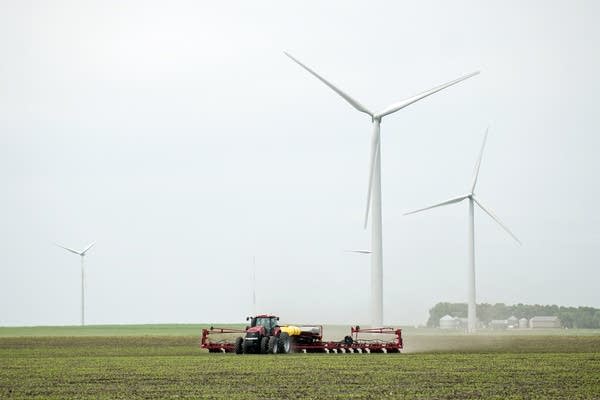Cheaper energy, or cleaner? Legislators torn

A tractor drives amongst wind turbines north of Luverne, Minn., June 13, 2014.
Jackson Forderer | For MPR News 2014
Go Deeper.
Create an account or log in to save stories.
Like this?
Thanks for liking this story! We have added it to a list of your favorite stories.


